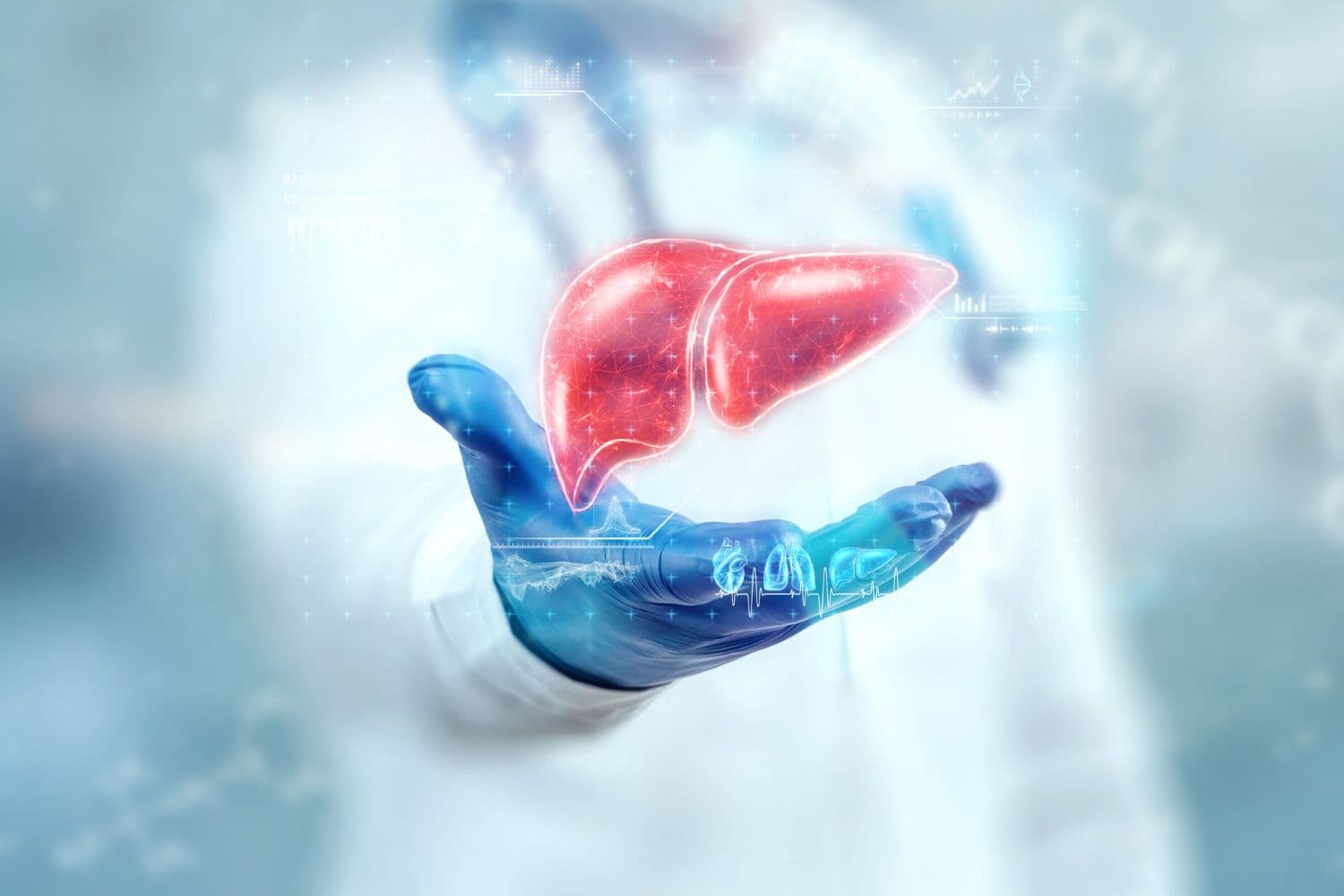What is Glycogen: The Body's Energy Reserve

MyFitnessCoach
November 6, 2023
Within the complex workings of the human body, there is a key component called glycogen, which is often likened to a backup of energy. Glycogen is a vital source of power that the body turns to when it requires a rapid surge of energy. Its importance lies in its central role in keeping our blood sugar levels in check and making sure the body always has the required energy for doing any physical activity. To truly understand the importance of glycogen, it's necessary to take a deep dive into what it is, how it forms, where it's stored, and how the body uses it.
Formation and Storage of Glycogen
Glycogen formation, or glycogenesis, happens when there is extra sugar (glucose) in the blood. This extra glucose comes from the food we eat, especially carbohydrates. Our body transforms these carbohydrates into glucose, and it goes into the blood. When the amount of sugar in our blood goes up, our pancreas releases a hormone called insulin. Insulin tells our cells to take in glucose to use it for energy. If there's more glucose than we need right away, our body changes it into glycogen through glycogenesis. This glycogen gets stored in our liver and muscles for later when we might need it. This way, our body ensures it has extra energy saved up.
The liver acts as the main place where glycogen is kept, serving as a handy stock of glucose to keep the levels of sugar in the blood stable. The muscles also hold onto glycogen, mostly for their own needs when the body is moving around. This smart way of spreading out the glycogen makes sure that the body can get the energy it needs from the glycogen, depending on what the body is up to.
Utilization of Glycogen
At times when the body requires more energy, like when we are doing lots of exercise or not eating, the body quickly uses its stored glycogen to give us the energy we need. To get this energy, the body changes the glycogen into glucose, a process called glycogenolysis. In this process, special helpers in the body break the glycogen into small pieces called glucose molecules. These little glucose molecules then move into our blood and go to the parts of our body that need them.
It is important to note that the muscles mainly use the glycogen they have stored to support activities that require physical effort. Meanwhile, the glycogen stored in the liver helps to keep the level of sugar in the blood steady and provides energy for the brain. This double duty of glycogen enables the body to distribute energy effectively to various systems as required, ensuring that the body functions properly even when there is a lot of demand for energy.
Regulation of Glycogen Levels
The regulation of glycogen levels is a highly intricate process that involves various hormones and enzymes working in synergy to maintain a delicate balance. Insulin and glucagon, two key hormones produced by the pancreas, play significant roles in regulating glycogen levels. Insulin promotes glycogen synthesis, ensuring that excess glucose is stored as glycogen, thus lowering blood sugar levels. On the other hand, glucagon stimulates glycogen breakdown (glycogenolysis), releasing glucose into the bloodstream when blood sugar levels drop. It helps in increasing the blood sugar level.
Furthermore, there is an enzyme called glycogen synthase that plays a role in helping glycogen form or come together. On the other hand, there's another enzyme called glycogen phosphorylase that helps in breaking glycogen down into smaller pieces. These two enzymes collaborate and cooperate to make sure that the body always has the right amount of glycogen to provide the necessary energy when it's needed. This teamwork helps the body meet its energy requirements in the best possible way.
Importance of Glycogen in Health and Wellness
Glycogen is extremely important for keeping our bodies functioning well, especially when we do a lot of physical activities. Think about athletes - they need glycogen to give them the energy they need for their workouts and to perform at their very best. Similarly, when someone goes for a long time without eating or has to do really tough exercises, their glycogen stores become their main source of energy to keep them going. So, glycogen is like our secret energy stash for when we need it the most.
Furthermore, glycogen acts as a protective shield against hypoglycemia, a health condition distinguished by unusually reduced levels of sugar in the bloodstream. This condition can result in feelings of lightheadedness, disorientation, and reduced strength. Through the release of glucose from stored glycogen, the body can avert these potentially dangerous circumstances and ensure a consistent and reliable source of energy for the brain and other vital bodily organs.
Benefits of Glycogen
Glycogen offers several essential benefits that contribute to the overall physical wellness and optimal functioning of the human body. Some of these benefits include:
- Quick Energy Source: Glycogen serves as a rapid and accessible source of energy that the body can quickly utilize during times of increased energy demand, such as physical activity or periods of fasting. This quick energy release supports sustained physical performance and overall endurance.
- Blood Sugar Regulation: By storing excess glucose as glycogen, the body can regulate blood sugar levels, preventing dangerous spikes and drops that could lead to health complications. Maintaining stable blood sugar levels is crucial for ensuring a consistent and adequate energy supply for the brain and other vital organs.
- Prevention of Hypoglycemia: Glycogen acts as a protective mechanism against hypoglycemia, a condition characterized by abnormally low blood sugar levels. By releasing glucose from stored glycogen, the body can prevent the onset of symptoms such as dizziness, confusion, and weakness, ensuring the proper functioning of various bodily systems.
- Support for Physical Performance: Particularly for athletes and individuals engaged in regular physical activities, glycogen plays a crucial role in supporting endurance and sustaining energy levels during workouts. Optimized glycogen stores enable individuals to perform at their best, enhancing overall physical performance and reducing the risk of fatigue during prolonged exercise.
- Brain Function: The maintenance of stable blood sugar levels facilitated by glycogen ensures a consistent energy supply for the brain. This steady energy provision is vital for sustaining cognitive function, concentration, and overall mental alertness, supporting optimal brain performance throughout the day.
- Metabolic Flexibility: Glycogen's role in efficiently storing and releasing glucose provides the body with metabolic flexibility, enabling it to adapt to varying energy demands. This adaptability ensures that the body can utilize energy efficiently during different activities and maintain overall metabolic stability.
In conclusion, glycogen stands as an essential component of the body's energy management system, ensuring that energy is readily available when needed. Its ability to rapidly mobilize glucose for immediate energy requirements underscores its critical role in maintaining overall health and well-being. By understanding the formation, storage, utilization, and regulation of glycogen, individuals can gain insights into the intricate mechanisms that enable the body to sustain itself during various activities and under varying conditions. Through proper nutrition and an active lifestyle, individuals can optimize their glycogen stores, promoting overall physical performance and well-being.

Ready to take your fitness journey to the next level? Try the MyFitnessCoach app today and experience the power of personalized workouts, nutrition tracking, and expert guidance right at your fingertips. With a focus on optimizing your glycogen levels for peak performance, our app is designed to help you achieve your fitness goals efficiently and effectively. Download the app now and unlock your full potential!
Frequently Asked Questions
Similar Articles
Stay informed with these similar articles.

MyFitnessCoach
October 18, 2023
What Does Body Goals Mean? A Path to a Healthy Lifestyle
In the world we live in now, lots of people talk about "body goals," which means having a body that's seen as perfect. On social media, in magazines, and on TV, we see lots of pictures of people with what seems like perfect bodies, which makes us feel like we have to look like them. But the real meaning of "body goals" is more than just looking good. It's about taking care of your whole self, not just how you look. In this article, we will discuss what does body goals actually mean and how you can achieve your body goals. Let’s get started:
.webp&w=3840&q=75)
MyFitnessCoach
September 5, 2023
How Much Protein in an Egg | The Nutritional Power
Eggs have long been a breakfast favorite for many, and for good reason. They're not only delicious but also packed with essential nutrients, making them a versatile and nutritious addition to your diet. One of the most common questions about eggs is, "How much protein is in an egg?" In this comprehensive guide, we'll delve into the world of eggs and explore their protein content, nutritional benefits, and how they can contribute to a balanced diet.

MyFitnessCoach
May 18, 2023
Fitness Guide: How Do I Start A Weight Loss Journey
Ready to start on a life-changing weight-loss journey? Congratulations for taking the first step towards being a better and happier version of yourself! Starting off a weight-loss journey may be both satisfying and stressful. With so much information available, having a well-defined plan and trusted assistance in achieving your goals is important. This article will help you start your weight-loss journey and achieve the results you desire.
